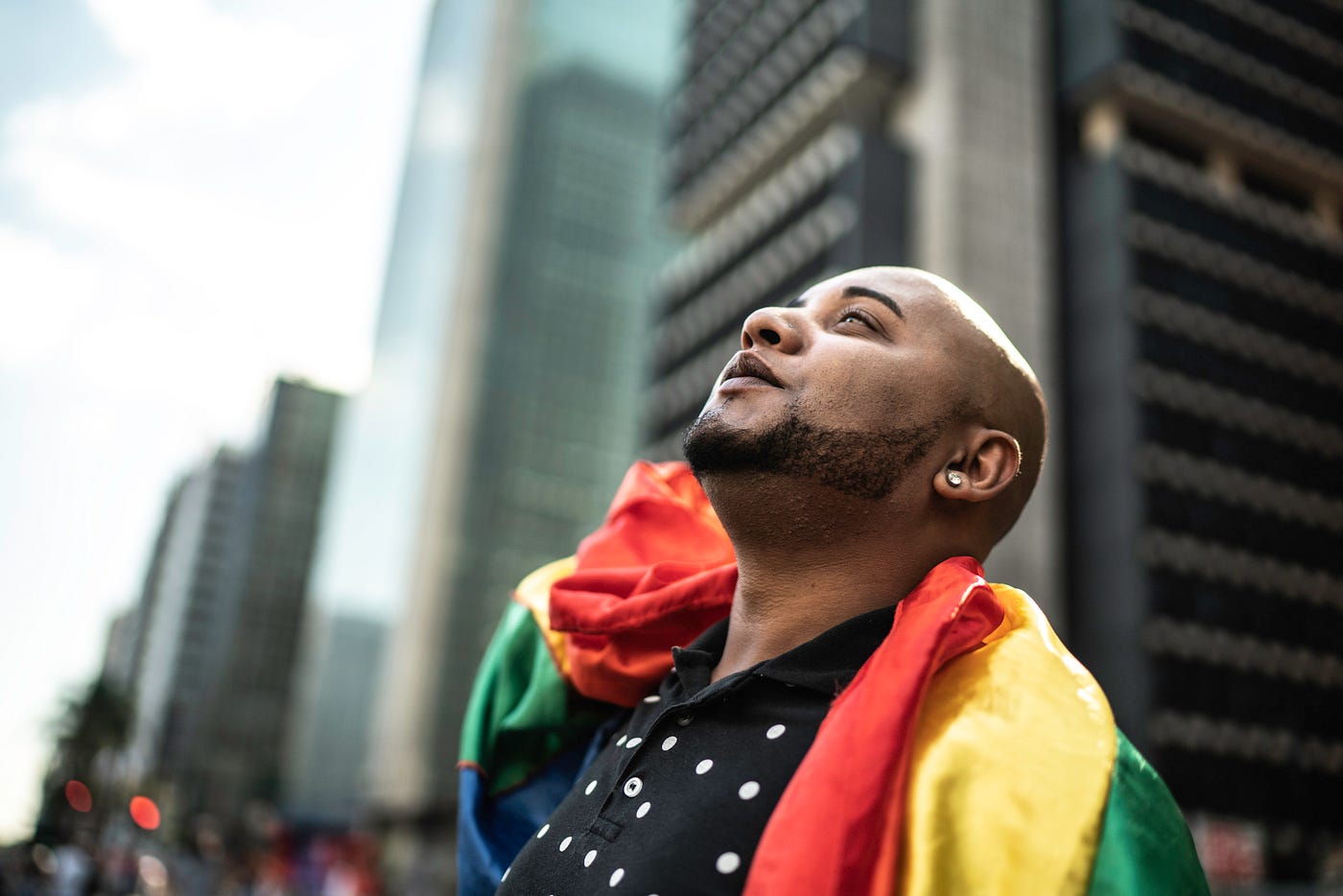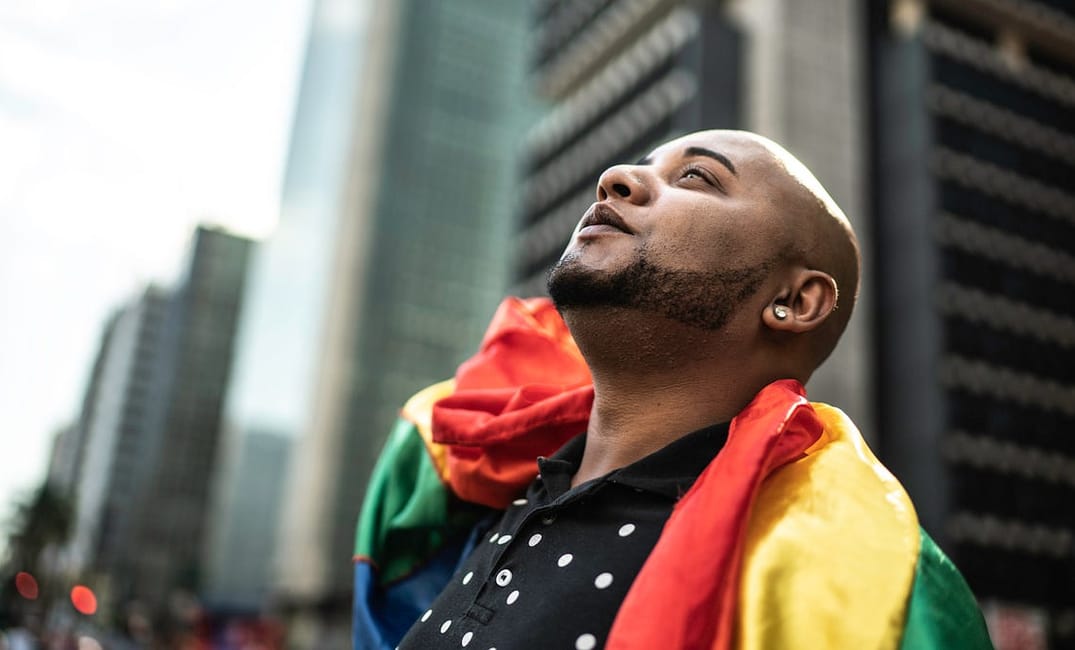
Grandma Dorothy discovered I was gay when I was 15 years old.
Standing from the top of the stairs, I looked up at her from the bottom. She wore a pink house gown adorned with a floral print. I couldn’t see the whites of her eyes, but I could hear the concern in her voice. Her words rattled as she said, “Now, you’re gay and Black — two things that can get you killed.”
I’d been warned that my life would always exist at the intersection of oppression. Grandma Dorothy wasn’t upset that I was gay, but instead she was concerned about how my well-being would be threatened. After all, I’m her only grandson and, therefore, her de facto favorite grandson.
Sign up for The Bold Italic newsletter to get the best content about life in the Bay Area in your inbox every week.
Grandma Dorothy may have put it a little dramatically, but she was right. Walking in this world as a Black man is challenging enough by itself. Walking in this world as a Black gay man is even riskier.
What has that walk been like so far? In school, I did not learn about African culture, and I was not taught the history of queerness throughout the centuries. When seeking health care, a doctor may judge that I have a higher pain tolerance than a white person, and a nurse may refuse to accept my blood donation. When applying for a job, I may get paid less because I’m perceived as knowing less, and I could be fired when they realize that a man possibly has held my ankles. When barred from entry into an exclusive club, I have to wonder if I got denied because I have braids in the style of Quincy, or because I held a man’s hand while waiting in line. When met with confrontation, I could be called a nigger and faggot in the same sentence. Maybe I’d even be met with sticks and stones, as Grandma Dorothy feared.
And above all of this, as a Black queer man, I can’t always count on the Black community to support me, nor can I count on fellow queers to shine their rainbow light upon me to levitate me out of suffering caused by racism within our own community.
Being Black and queer requires me to emotionally juggle success and disappointment, progress and regression, gain and loss.
Grandma Dorothy was different, because she knew what unconditional love meant — it comes without conditions. But not everyone is like her. I mean, she did tell me quite candidly, “Not everyone is going to like you,” but her advice was too general. For example, her advice didn’t fully prepare me for the ways in which the Black community weaponizes Christianity. Family members — people meant to protect me and keep me safe — cited Romans 1.26–7 when I was growing up, calling my love “shameless” and “unnatural.” They pleaded that I “change my ways,” asserting that everyone is capable of evolving because “we’re all born into sin.” One prayer shouted over me said, “We don’t tolerate murderers, we don’t tolerate thieves, we don’t tolerate homosexuality, Father God. Give him the vision of a wife.”
Their prayers didn’t work (though neither did mine for a husband—at least not yet). Like every LTR-oriented Black queer man, I navigate the dating scene carefully and equipped with an understanding endemic to us. We quickly learn about how our Black bodies are often fetishized. When a white man cares more about what’s in between my legs than what’s in between my ears, that’s fetishism.
Have you ever stopped to think why, on porn websites, the BBC category (and we’re not talking about the British Broadcasting Company) appears next to the sex toy category? It makes me wonder if people see my body the same way that they see a dildo or a blow-up doll. Hard or squishy, a toy doesn’t have thoughts or fears, rights or feelings. No one checks in with a toy and asks, “Hey, how are you doing? Does this feel okay?” Similarly, comparing Black bodies to chocolate in a sexual way seems innocuous to many white people, yet it objectifies us. After all, nobody asks chocolate if it wants to be eaten. They just eat it.
But even through the pain of balancing my Black and queer identities, there’s also happiness. I give myself permission to have a life of #BlackJoy and #BlackExcellence and a life of #QueerPride. Truthfully, our society has moved mountains on both fronts. I celebrate it. But we also have so far to go.
Being Black and queer requires me to emotionally juggle success and disappointment, progress and regression, gain and loss. One of the most poignant examples of this was in June 2015, when the U.S. Supreme Court made marriage equality the law of the land nationwide. This heartwarming victory overshadowed the court’s heart-wrenching verdict just the day before to gut the 1965 Voting Rights Act. In that opinion, the split court ruled to invalidate the heart of the landmark legislation and allow states to change their election laws without advance federal approval.
In his majority opinion, Chief Justice Roberts attested that “our country has changed” and that our government no longer needs to uphold protections for Black people when it comes to voting. If you’ve watched the news, like, ever, you know how wrong this opinion is. Our society does little to provide Black people the same opportunities as whites to participate fully in our economy, government, and, of course, the voting process. Despite gains earned by Black individuals, leaders, and movements, this has never changed.
Maybe, moving forward, those who are Black and gay can come out to their grandmas without being warned about the threats to their life.
Those two days in June, I felt such a spectrum of emotions. While I celebrated marriage equality victory with my queer friends, I also mourned the loss of the protections my Grandma Dorothy and other ancestors had fought so hard to achieve. I was sad and happy, and that was okay, because I am Black and gay. I have to live in both worlds. Both worlds make me who I am today.
There is also much to celebrate. Recently, the Merriam-Webster dictionary expanded the definition of racism to include systemic oppression. NASCAR banned the use of the Confederate flag. Civil War statutes are toppling over. Some of the same people in my life who cited Romans 1.26–7 apologized. And two years ago, corporations would outdo themselves at Pride parades but never acknowledge Black Lives Matter. Today, they do both!
Sure, some people may “never like me,” but at least today fewer and fewer of these people dislike me solely because of the color of my skin or who I love. Maybe, moving forward, those who are Black and gay can come out to their grandmas without being warned about the threats to their life. This hope is earned by fighting in the streets, fighting in the courts, and driving head-on into difficult conversations with the ones we love. To achieve the righteous impact, we understand that no one’s finished here. We must keep fighting and educating tirelessly.
These vignettes are not unusual and illuminate the complexities of holding space for being both Black and queer; we’re on the battlefield of multiple campaigns for tolerance, diversity, inclusion, and justice. My story is not the story. In fact, there are many stories out there. They are fascinating and provocative, beautiful and true. And for too long they’ve been bound and covered in dust. Seek them out. Lift them up. And turn to the page that my Grandma Dorothy wrote and read how to love people like me unconditionally. We invite your support.







